Israel’s accusation of Iran’s involvement in ship attack ‘childish’, influenced by Zionist lobby: Foreign Ministry
The spokesman for Iran’s Foreign Ministry says recent accusations leveled against Tehran by Israel and the United States about attacking an Israeli-owned merchant ship in the Sea of Oman are “childish” and influenced by the Zionist lobby in the United States.
Saeed Khatibzadeh made the remarks in a Sunday press briefing with the Iranian media, when he was asked about Israel and the US accusing Iran of attacking the Israeli-owned merchant ship off the coast of Oman in the Arabian Sea.
“The illegitimate Zionist entity must stop leveling baseless charges against Iran. This is not the first time that this regime brings up such accusations [against Tehran],” he added.
Khatibzadeh noted that such accusations are leveled by the well-known lobby of the Zionist regime in the United States, adding, “The Zionist regime’s officials must know that such projectionist moves will not help them in any way.”
“We must be very cautious not to fall into traps set by the Zionists and the Quds occupying regime in such cases,” he said, adding, "This regime is at the lowest point of legitimacy and is experiencing the most difficult days of its life."
The Iranian spokesman emphasized that wherever the Israeli regime has set foot, it has brought nothing but insecurity, violence, terror and war, and those who paved the ground for Tel Aviv’s presence in the region must be held accountable.
Israeli Prime Minister Naftali Bennett on Sunday claimed that the regime was "privy to 'evidence' proving Iran was behind the deadly tanker attack off Oman."
Israeli Foreign Minister Yair Lapid has also pointed the accusing finger at Iran, saying that the incident deserved a harsh response.
In a statement on Friday, Zodiac Maritime, the Israeli-owned firm managing the oil tanker, claimed that two crewmen, a Briton and a Romanian, had been killed in the assault.
In recent months, several other Israeli ships have come under attack on various maritime routes across the world.
Earlier this month, a fire broke out on an Israeli-owned cargo ship after it was struck by an “unidentified weapon” in the northern Indian Ocean. Lebanon’s al-Mayadeen television network said at the time that the Israeli vessel had been en route to the coast of the UAE when it was attacked.
The attacks come against the backdrop of the Israeli regime’s various assaults on cargo ships across the Persian Gulf region and elsewhere.
'US hinders agreement in Vienna by failing to fulfill its commitments'
Asked whether the Vienna talks on the revival of Iran’s nuclear deal with world powers, officially known as the Joint Comprehensive Plan of Action (JCPOA), have reached their end, Khatibzadeh said, “Such speculations are of no help in this matter.”
He added that Iran and the remaining parties to the JCPOA reached very important agreements and made good achievements during the Vienna talks, but some problems remain, which are “serious” issues.
"If it were not for these issues, an agreement would have certainly be reached," Khatibzadeh said.
"By lingering on certain issues and putting forth some excessive demands and not complying with its obligations, the US barred Iran and the group 4+1 from reaching an agreement in due time," Iran's Foreign Ministry spokesman said.
Iran and the P4+1 group of countries failed to reach an agreement in due time due to excessive demands of the US, Washington's lack of commitment to its obligations as per the JCPOA and wasting time on the unsolved issues, the spokesman emphasized.
The Vienna talks began in early April with the aim of reviving the JCPOA by bringing all original parties, especially the US, back into compliance with the deal, three years after Washington withdrew from the accord and tried to sabotage it.
So far, six rounds of negotiations have been held in the Austrian capital, as a result of which, according to participants, “significant progress” has been made in the course of the “constructive” and “businesslike” talks.
However, disagreements have persisted over a number of issues, including how to sequence the US sanctions removal, with Tehran arguing that since Washington was the party that violated the terms of the agreement, it should take the first step back into compliance with the deal by removing its unilateral sanctions.
Tehran has also asked for guarantees that the US will not again leave the JCPOA under a new administration. US President Joe Biden's administration says it cannot give such guarantees.
Iran is also dissatisfied with the scope of sanctions that the US is willing to remove, saying the sanctions removal must cover all the bans imposed on the Islamic Republic after the JCPOA went into force in January 2016.
The US, for its part, has asked for follow-on talks about other issues, such as Iran’s missile program, which Tehran has rejected outright.
Iran’s senior nuclear negotiator said on July 17 that the talks in Vienna have to allow time space for the pending democratic transition in Tehran to take its own course.
'Logic of Imposing sanctions under false pretexts is a failed logic'
In response to a question about a report by the Wall Street Journal about Washington's plan to impose new sanctions on Iran, the Iranian official said the White House is addicted to sanctions.
Iran's Foreign Ministry spokesman said American officials "have repeatedly admitted that ... the maximum pressure campaign against Iran has not only failed, but also turned into a maximum defeat for the United States."
Imposing sanctions “under baseless pretexts” is a failed logic, Khatibzadeh said, emphasizing, “The Islamic Republic of Iran has been targeted by the US unilateral, extraterritorial and cruel sanctions for over four decades and has proved that they [the US] cannot defeat the [Iranian] nation’s will no matter what they do.”
'Iran never uses its neighbors to settle scores with other countries'
In response to a question about Iran's reaction to Biden's remarks during a meeting with Iraqi Prime Minister Mustafa al-Kadhimi, Khatibzadeh said, "The Islamic Republic of Iran has never used its neighboring and friendly countries as a place to settle scores with third countries.”
On the contrary, Khatibzadeh added, it is the US that has turned countries in the region into a base for its crimes against regional states.
He noted that Iran regards security, peace, progress and development of its neighbors as its own.
'US is guilty and cannot go unpunished'
Asked about the latest remarks by US Secretary of State Antony Blinken about the JCPOA revival talks, Khatibzadeh said the United States is at the last in line to speak about the negotiations because it is a violator of the nuclear deal and a country that has imposed oppressive sanctions on Iran.
“The United States is guilty and all this injustice to the Iranian nation cannot go unpunished.”
He noted that Iran and the P4+1 group of countries pursued the Vienna talks with seriousness, but the US failed to fulfill its obligations based on UN Security Council Resolution 2231, which endorse the JCPOA. “When the US fulfills its commitments, an agreement will be achieved.”
Addressing a news conference in Kuwait on Thursday, Blinken said the negotiating process to revive the JCPOA could not go on indefinitely, and that the ball is in Tehran's court.
UNRWA chief warns about 'record highs' of diseases in Gaza amid Israeli siege
Israeli agricultural exports face looming 'collapse' amid boycotts over Gaza genocide
VIDEO | Canadians preparing to hold more rallies in solidarity with Venezuela
VIDEO | Iranian national Mahdieh Esfandiari goes on trial for supporting Palestine
VIDEO | Italian farmers launch protest campaign against EU-Mercosur free trade deal
VIDEO | Trump’s Gaza ‘Board of Peace’ invitation sparks criticism in Pakistan
VIDEO | Iran, Iraq vow to deepen ties, hail US exit
Araghchi slams World Economic Forum for canceling his invitation


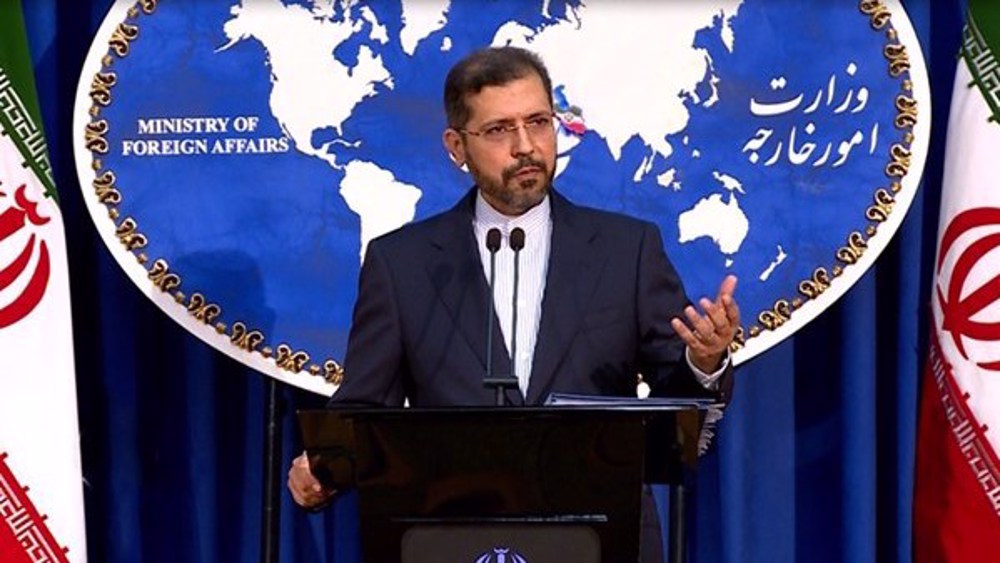
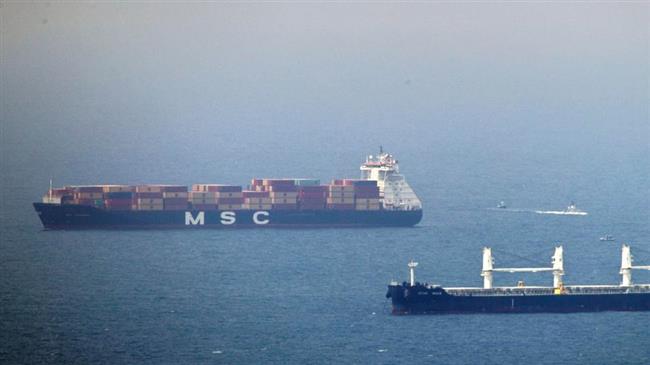

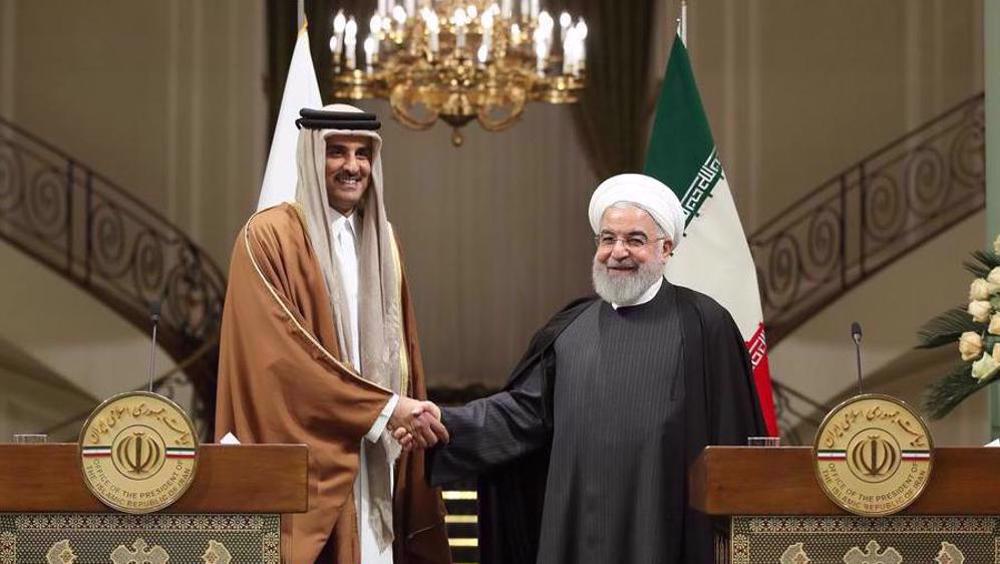
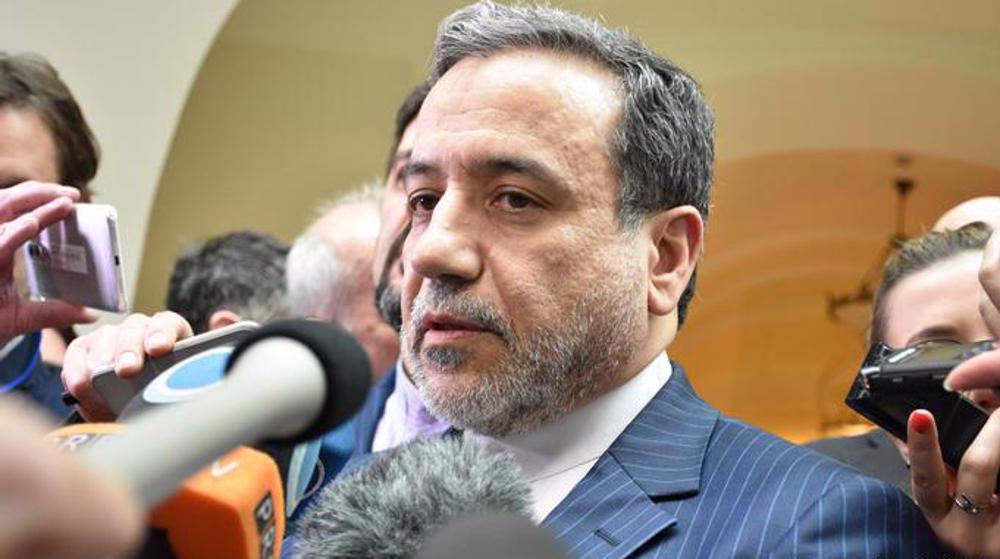
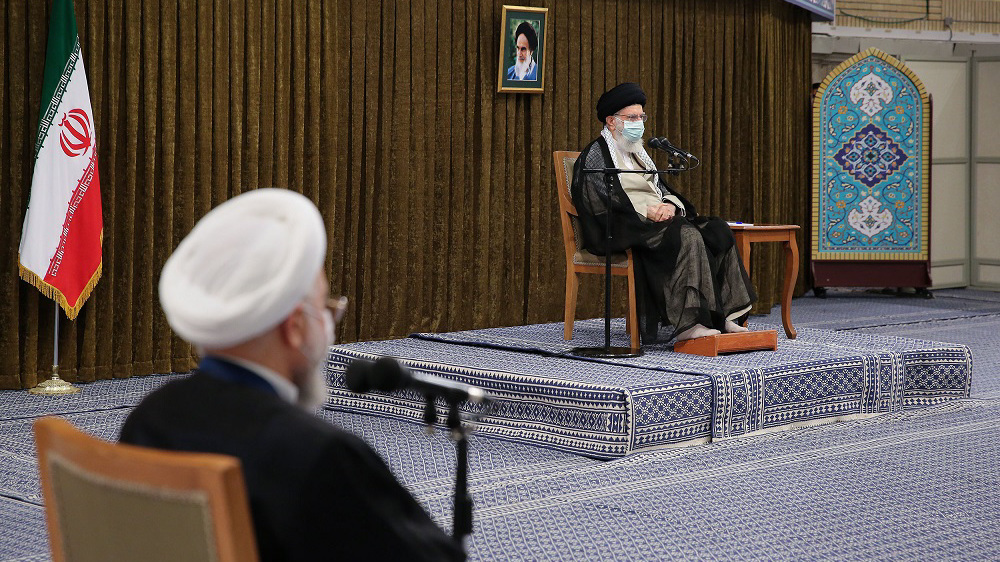
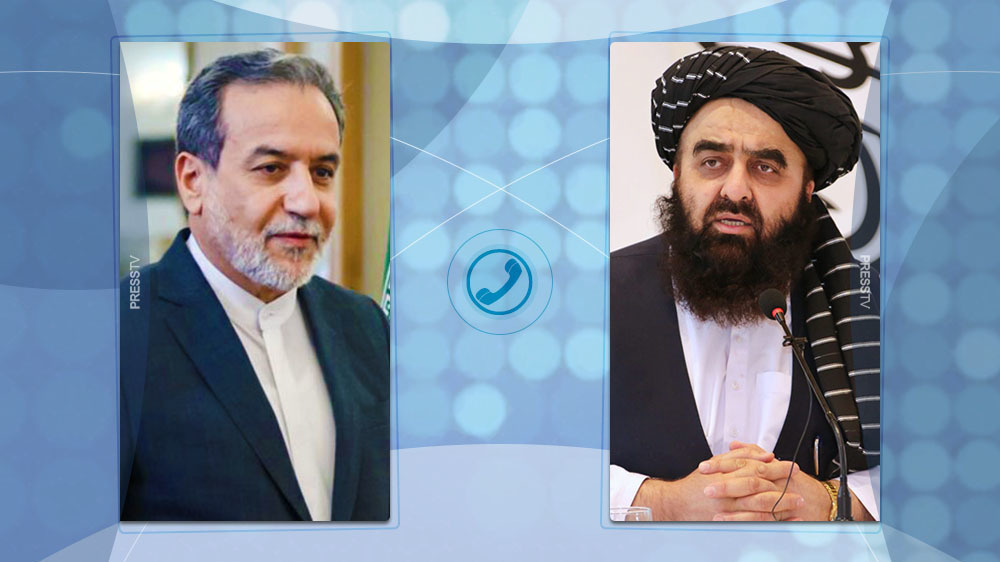
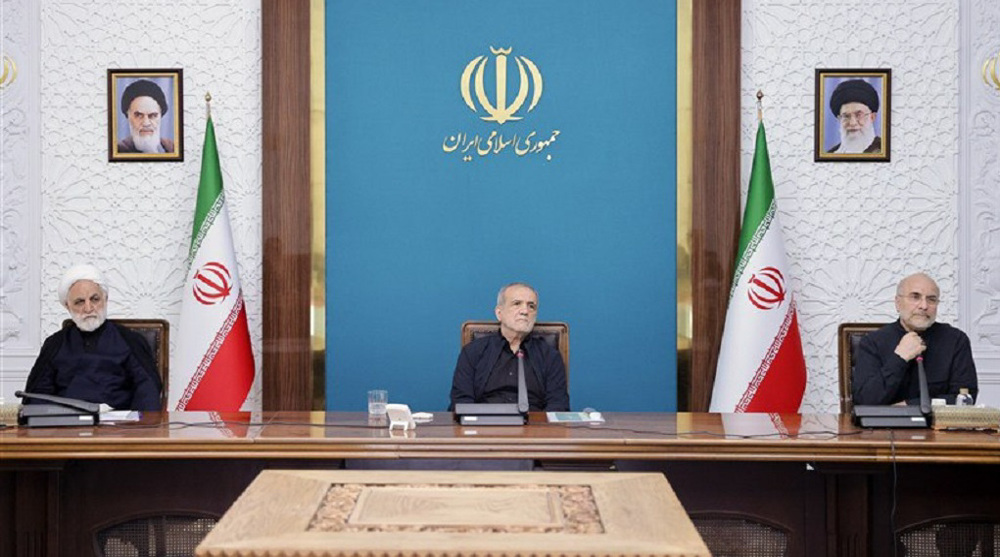





 This makes it easy to access the Press TV website
This makes it easy to access the Press TV website